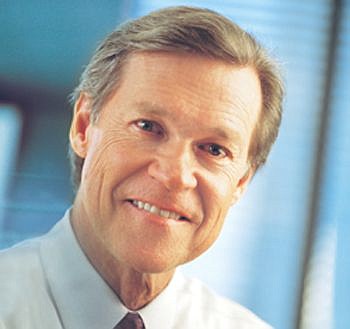
The Legislature in 2013 decided Florida courts should move to an updated standard when it came to how the Florida Supreme Court allowed expert witness testimony.
The so-called Daubert standard has been used by the federal government since 1993. It makes the trial judge responsible for ensuring scientific testimony and evidence is relevant and reliable. Half of the U.S. state courts use it.
However, The Florida Bar has pushed back. The board of governors in recent weeks resoundingly voted to keep the decades-old Frye standard in place.
A Bar subcommittee agrees, although by a much narrower vote, that evidence should continue to be accepted if it has gained general acceptance in its corresponding field.
It will be up to the Florida Supreme Court next spring to determine which evidentiary path to follow.
Jacksonville attorney Wayne Hogan believes in the current path, the Frye standard. The decision, he said, could influence how juries end up hearing cases and deciding verdicts.
“Cases often include expert testimony,” he said. “This could change how expert testimony is admitted.”
Instead of generally accepted information being presented in a courtroom, heard by juries and open to cross-examination, a judge would consider beforehand if the testimony should be allowed.
Hogan and other critics of the Daubert standard say additional hearings are burdensome in terms of cost and time.
“At a time when the Bar is focused on the importance of access to justice,” said Hogan, “the proposal for change runs just in the opposite direction.”
It also could set different standards for each circuit depending on how judges perceive expert witnesses, Hogan said, which could impact outcomes.
Hogan serves on the Bar’s Code & Rules of Evidence standing committee. That group voted 16-14 in mid-October to decline adopting the Daubert standard.
Rich Mantei, an assistant state attorney in the 4th Judicial Circuit, also serves on that committee.
Unlike Hogan, though, he favors Daubert over Frye. He said he understands both sides of the argument, but thinks Daubert helps eliminate pure opinion that’s admissible in the courts.
He deals with criminal cases and said the largest differences of opinion seem to come from traditional plaintiff and defense attorneys in the civil court context.
The Florida Bar spent months gathering comments and feedback, even setting up a website dedicated to the subject.
Close to 700 members within the legal industry responded. More than 400 said the Bar should keep Frye, while more than 200 said the change should be made. The rest were undecided.
The Bar’s board of governors went with the majority on the issue, voting 33-9 against changing the expert testimony standards. It’ll now head to the Florida Supreme Court by Feb. 1 as part of the Bar’s evidence committee report offered every three years.
From there, the seven-member group will decide after review and more comments.
Just because the Bar’s board of governors voted one way doesn’t mean the current method will stick, said attorney Jennifer Shoaf Richardson.
“You can bet they will review it thoroughly,” she said.
Richardson also serves on the evidence committee and said the “sea change” nature of the issue has been the reason it’s been so prevalent among legal discussions.
She mainly deals in federal court — under Daubert — representing insurance companies and is in favor the switch.
“At the end of the day, a good case is a good case,” she said. “If an expert is any good, they’ll work under Daubert. If they’re on shaky ground, they might not have as much of a chance.”
@writerchapman
(904) 356-2466